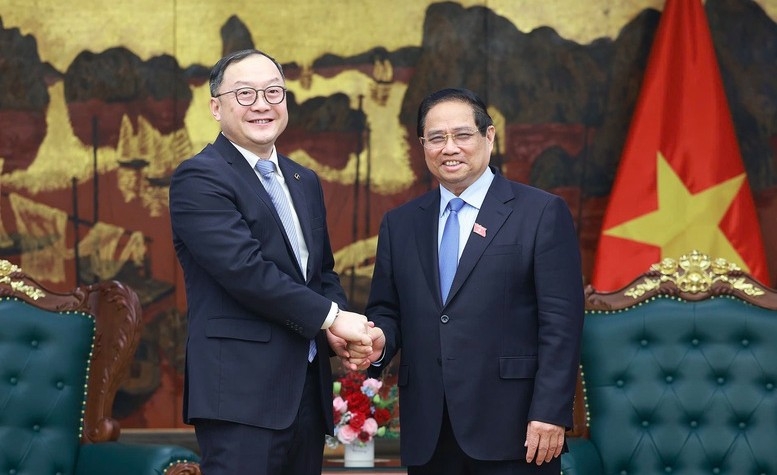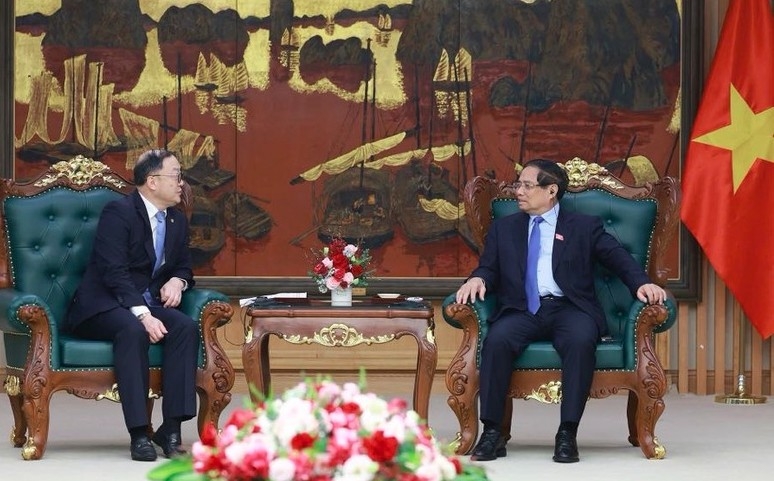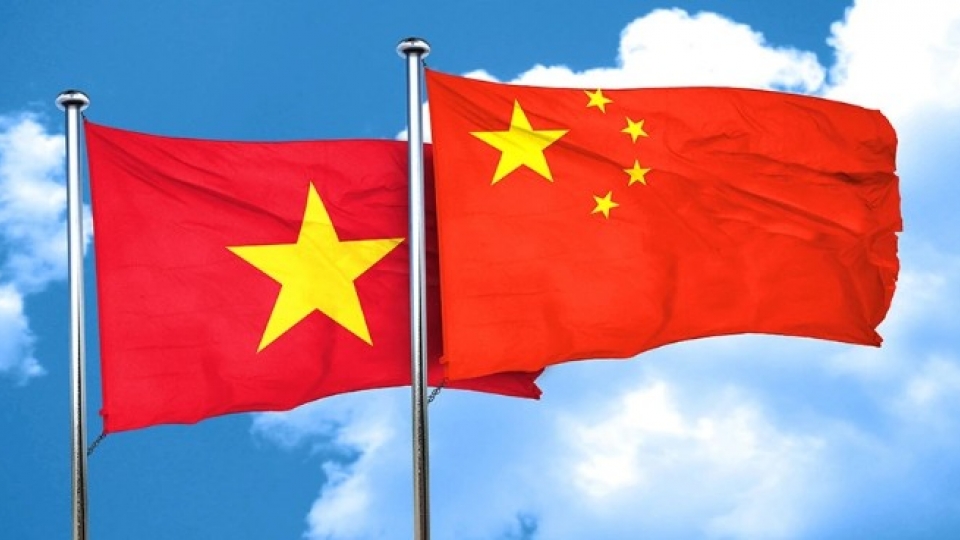PM Chinh calls for PowerChina’s support in railway infrastructure development
VOV.VN - Prime Minister Pham Minh Chinh has proposed enhanced cooperation between Vietnam and the Power Construction Corporation of China (PowerChina) to boost the country’s railway industry, covering technology transfer, training of highly skilled personnel, management practices, and operational solutions.

He made the proposal during a meeting on May 21 in Hanoi with Zhou Jiayi, President of PowerChina Asia Pacific, and representatives of consortiums and partner firms operating in Vietnam.
Praising PowerChina for its technological and business achievements worldwide and in Vietnam, the Government leader highlighted the longstanding friendship between Vietnam and China, saying that both nations are comprehensive strategic partners and are jointly building a "community with a shared future," providing a favorable environment and strong foundation for enhanced, mutually beneficial business cooperation.
Vietnam is focusing on three strategic breakthroughs, including infrastructure development in transportation, energy, and digital infrastructure, with a special emphasis on connectivity with China, Chinh told his guest.
He expressed hope that PowerChina will step up co-operation with Vietnamese partners, particularly in clean energy and strategic infrastructure, including standard-gauge and urban railways. Notably, he underlined the importance of the Hai Phong – Hanoi – Lao Cai railway line, which connects to Kunming and Chongqing, and extends to European nations.
Zhou Jiayi expressed his thanks for the Vietnamese Government's trust in PowerChina, adding that the corporation operates across over 130 countries, focusing on five key areas, including water and hydropower, electric power, urban infrastructure, mining, and digitalization. In 2024, PowerChina recorded revenue of more than US$100 billion, ranking 108th among the world’s top 500 enterprises.
PowerChina has been active in Vietnam since the 2000s, participating in the construction of over 100 energy projects and various infrastructure and port developments. In 2024, the corporation signed a Memorandum of Understanding with several Vietnamese companies, including FECON, Lung Lo Construction Corporation, Song Da Corporation, and Thang Long Corporation, to form the CVRail consortium for exploring and carrying out key national railway projects. The combined revenue of these Vietnamese partners approximated VND22 trillion in 2024.

With experience in constructing over 2,000 kilometers of railways in China, Laos, and Indonesia, PowerChina expressed its desire for government support to partner with the four Vietnamese firms in implementing railway projects in Vietnam, starting with the Lao Cai – Hanoi – Hai Phong line. The corporation pledged to ensure project progress, quality, and cost control, while sharing technical and managerial expertise with local partners.
As the world’s seventh-largest energy contractor, PowerChina also aims to expand its cooperation and investment in renewable energy and other infrastructure sectors in Vietnam.
The Vietnamese Government chief hailed PowerChina’s plans to cooperation with Vietnamese partners and reiterated support for its investment and business operations in Vietnam’s railway sector. He also noted China’s longstanding cooperation in various successful infrastructure projects in Vietnam. He affirmed that Vietnam encourages reputable Chinese firms to invest in and develop railway infrastructure, particularly the Lao Cai – Hanoi – Hai Phong route.
He suggested that PowerChina support Vietnam in developing its railway industry by transferring technology, training skilled human resources, and sharing management and operational solutions.
PM Chinh further highlighted Vietnam’s recent resolutions aimed at promoting science, technology, innovation, digital transformation, and private sector development, supported by open, preferential policies.
He called on PowerChina to assist Vietnamese firms in joining its global supply chain and transfer technologies to enterprises such as Viettel and the Vietnam National Industry-Energy Group. This includes technologies for wind turbines and solar panels. He also proposed co-operation with Vietnamese firms such as Lung Lo and Song Da to explore and develop energy projects, especially wind power in northern provinces.
With strategic vision and ambition, PM Chinh expressed hope that PowerChina, through cooperation with Vietnamese companies, would expand its market to other Southeast Asian nations and beyond, thereby elevating Vietnam’s regional position.
PM Chinh concluded that with the principle of "harmonized benefits and shared risks," Vietnam views the success of foreign businesses as its own. The Government, ministries, sectors and localities of Vietnam will continue to accompany and support foreign investors, including PowerChina and Chinese enterprises, in ensuring effective, lawful, and mutually beneficial investment and project implementation in Vietnam.



